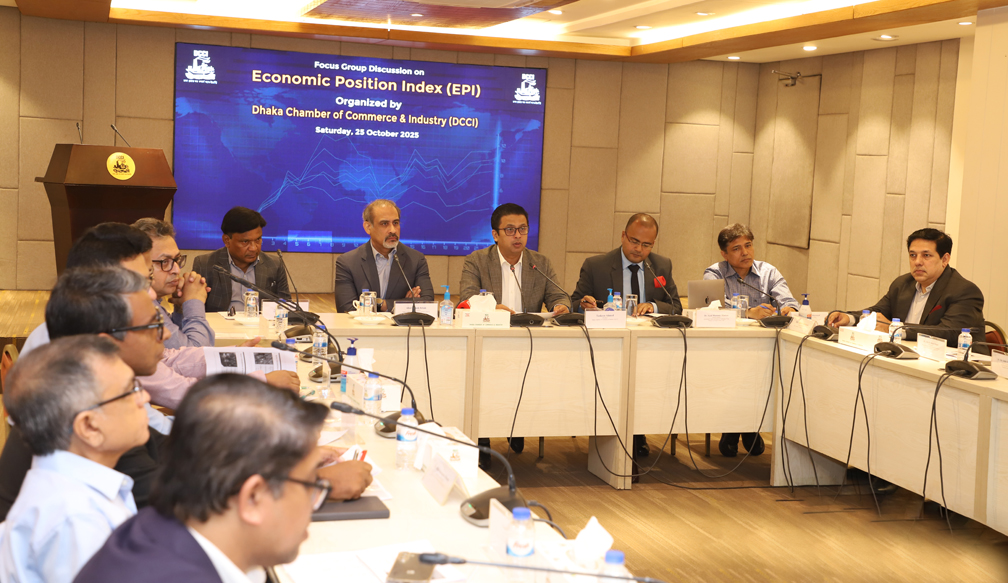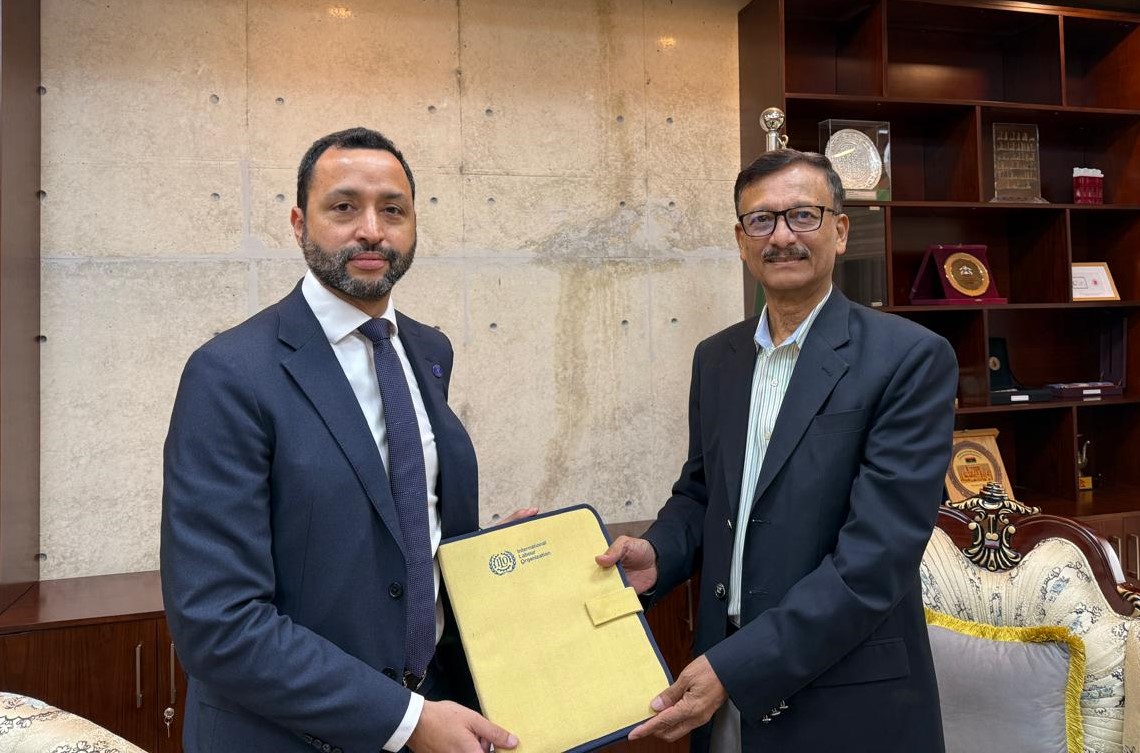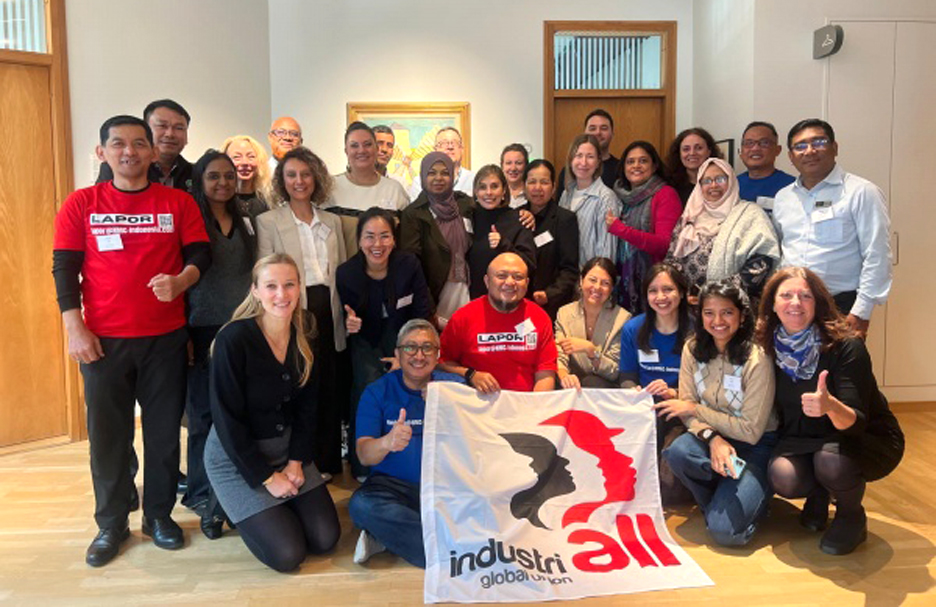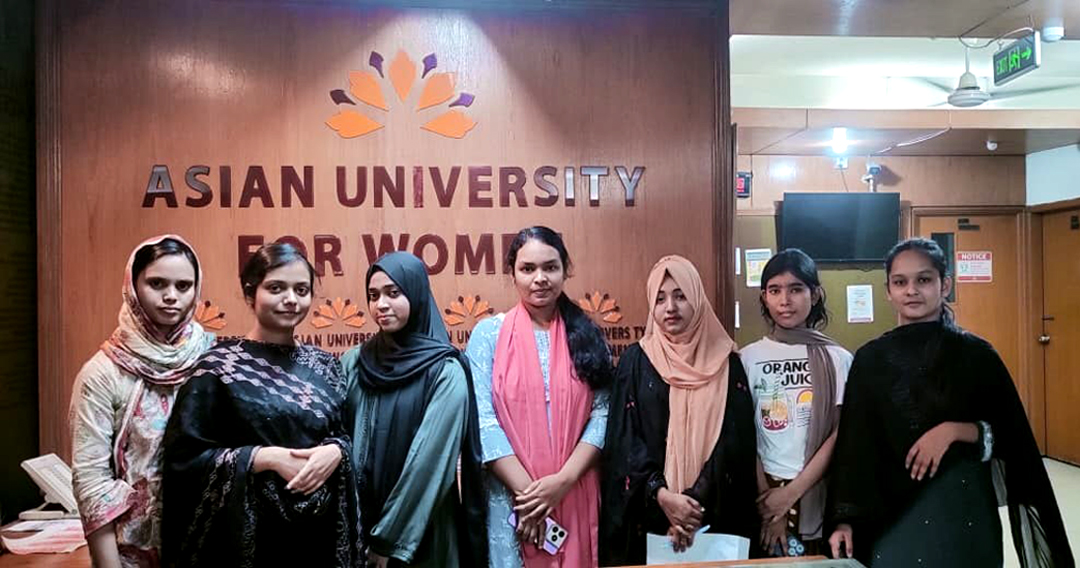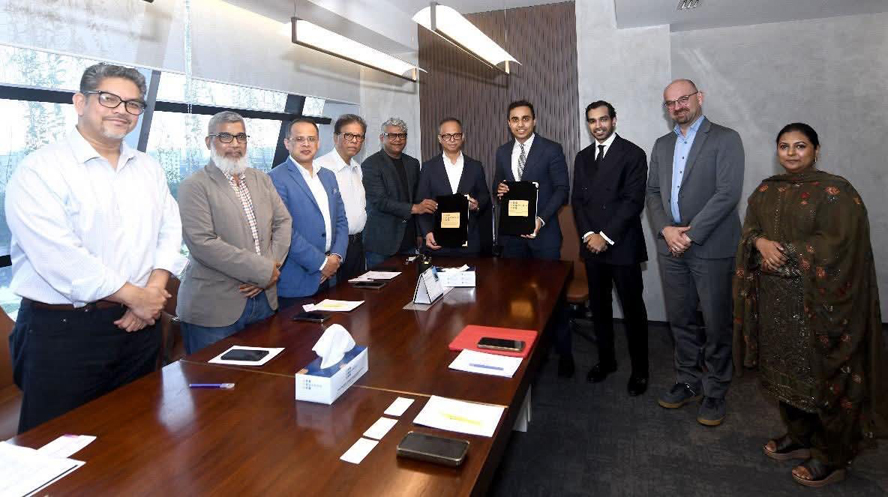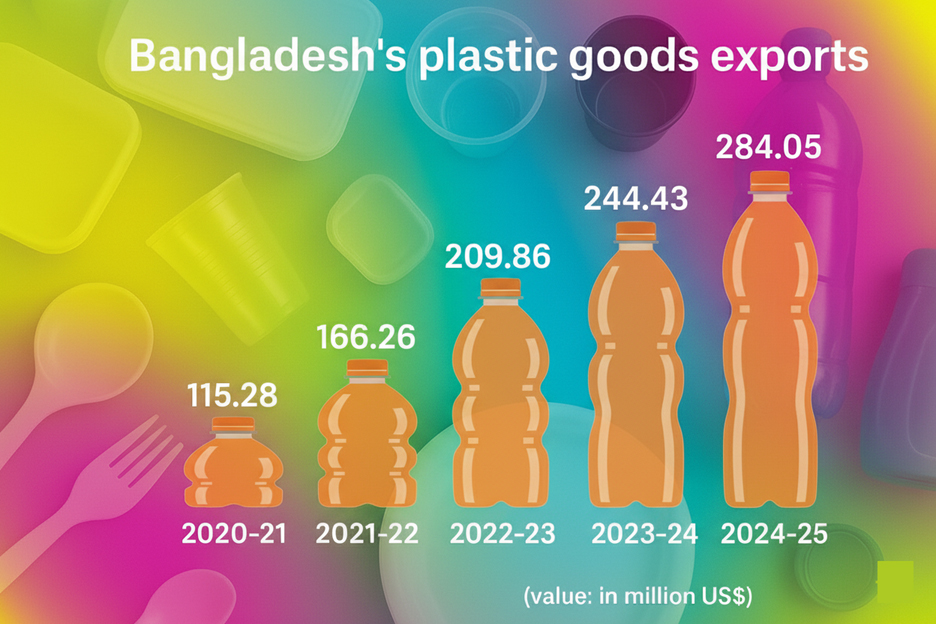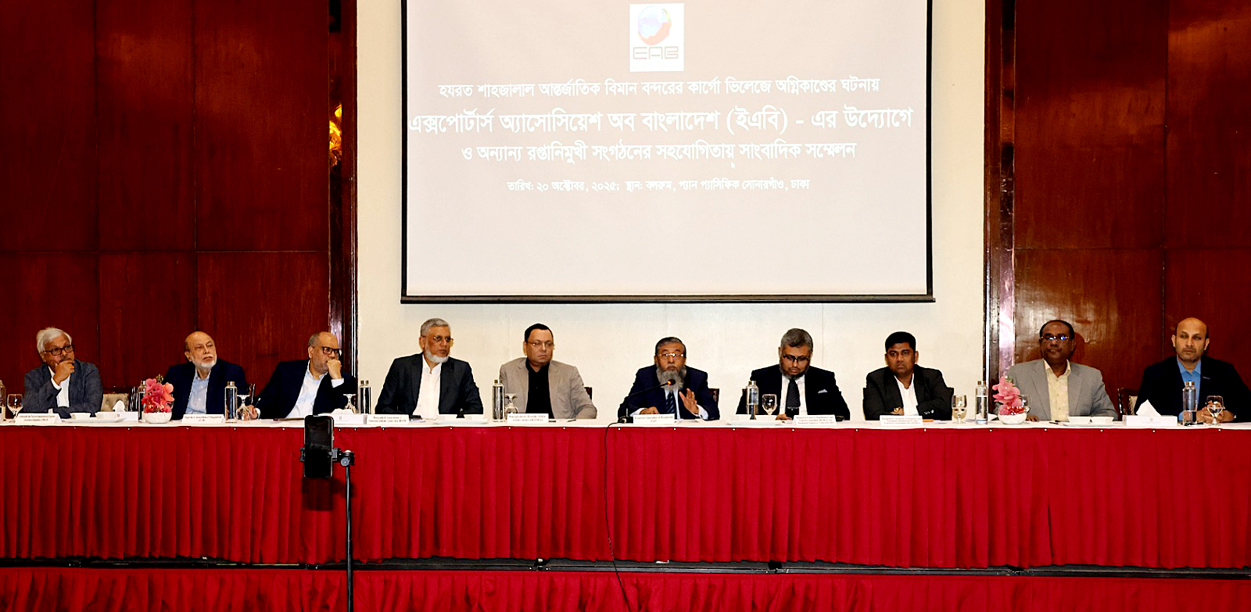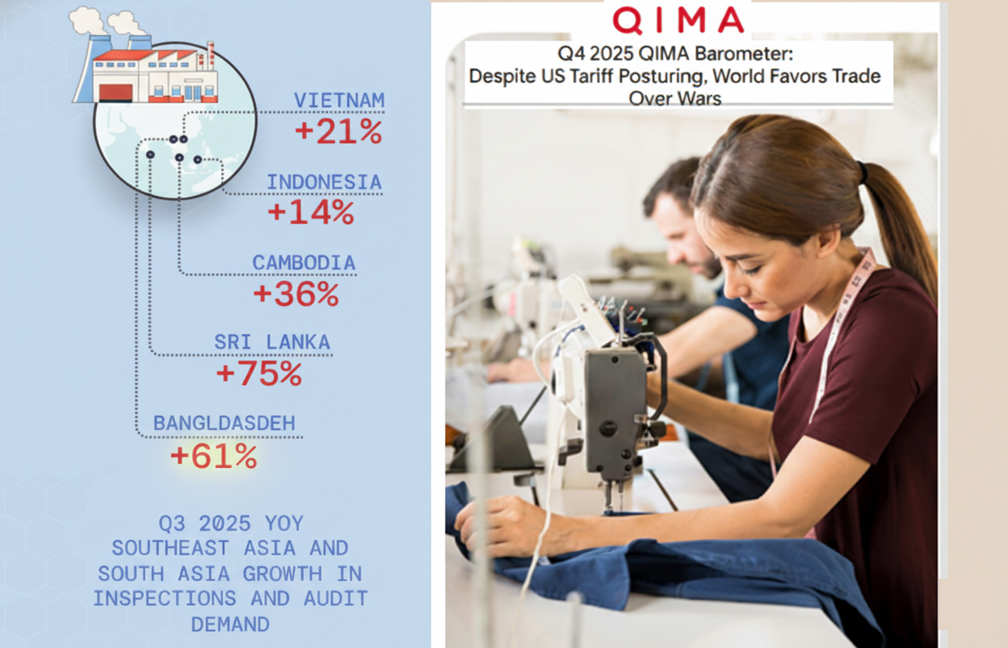Dhaka district contributes approximately 46 per cent of the nation’s gross domestic product, according to a recent survey conducted by the Dhaka Chamber of Commerce and Industry (DCCI).
The findings were unveiled during a focus group discussion held at the Chamber’s office in the capital on Saturday, ahead of the launch of DCCI’s upcoming Economic Position Index (EPI).
At the event, AKM Asaduzzaman Patwary, acting secretary general of the DCCI, delivered the keynote address.
He said that the survey, carried out in February–March 2025, involved interviews with 654 respondents, comprising 365 representatives from the manufacturing sector and 289 from the services sector.
According to the survey, the average per capita income of Dhaka residents stands at $5,163, nearly double the national average of $2,820.
The city is also a major employment hub, accounting for 40 per cent of total national employment.
Dhaka accommodates 32 per cent of the country’s urban population and 11.2 per cent of the total population, giving it one of the highest population densities in Asia.
Furthermore, the capital is responsible for 40 per cent of Bangladesh’s total exports.
Highlighting the importance of the EPI, Patwary pointed out that rapidly changing geoeconomic conditions and local factors often render government policies and decisions less effective.
Existing indices, such as B-READY, the Ease of Doing Business Index, BBX, and BCI, are unable to capture frequent economic shifts. Similarly, broader indices like QIIP, HDI, HPI, and MDPI provide only a limited perspective on economic dynamics, human development, and poverty trends.
Existing tools from the Bangladesh Bureau of Statistics, such as GDP, CPI, and WRI, lack the granularity and timeliness needed to monitor quarterly changes and regional disparities.
‘GDP reports only reflect value changes with a time lag,’ he said.
In this context, the DCCI aims to develop the EPI to track quarterly fluctuations in business activity, sectoral performance, and the overall economic position within Dhaka district.
While the index will initially focus on the capital, it is expected to expand nationwide in due course.
DCCI President Taskeen Ahmed observed that, despite the existence of multiple local and international indices measuring the business environment, none fully reflect the real picture of economic activity and the factors driving change.
He said that the quarterly EPI will provide crucial insights into production, sales, order flows, export trends, employment, business confidence, and investment patterns, particularly within the industrial sector.
‘The initial index will include data from the readymade garments, textiles, wholesale and retail trade, real estate, transportation and storage, and banking sectors,’ he said.
Former DCCI president Abul Kasem Khan said that, although SMEs are a key employment source and a major driver of economic growth, their development has been unsatisfactory.
He advocated for comparative assessments in the EPI, noting that Bangladesh lags behind on many economic indicators due to delays in implementing reforms and inadequate evaluation by relevant authorities.
Kasem suggested prioritising reform implementation, including digitising trade licences and other official documents.
Md Nurul Alam, director general of the National Productivity Organisation, called for more meticulous data collection to support evidence-based policymaking.
Former DCCI president Ashraf Ahmed stressed the importance of statistical analysis of survey data as a foundation for future research.
Syed Muntasir Mamun, director general of the International Trade, Investment & Technology Wing at the Ministry of Foreign Affairs, highlighted the importance of maintaining foreign investor confidence in the economy, industrial sector, and public and private institutions.
Saif Uddin Ahammad, joint secretary of the Ministry of Commerce and CEO of the Bangladesh Foreign Trade Institute, emphasised coordination between DCCI data and other institutional datasets and called for more sector-specific and diversified inputs, including from the light engineering and service sectors.
Nawshad Mustafa, director of SME and SMESPD at Bangladesh Bank, said that simplified SME policies could be further improved through targeted data on loan access challenges.
Academics such as Md Aynul Islam of Jagannath University recommended adopting established international research methodologies and publishing findings in reputable journals.
Md Deen Islam, research director of RAPID, suggested methodological revisions to better capture macroeconomic conditions.
Miah Rahmat Ali, senior private sector specialist at the International Finance Corporation, cited the planned introduction of a new Insolvency Act to facilitate business operations and stressed the value of analysing changes in local entrepreneurial activity to inform policy.


